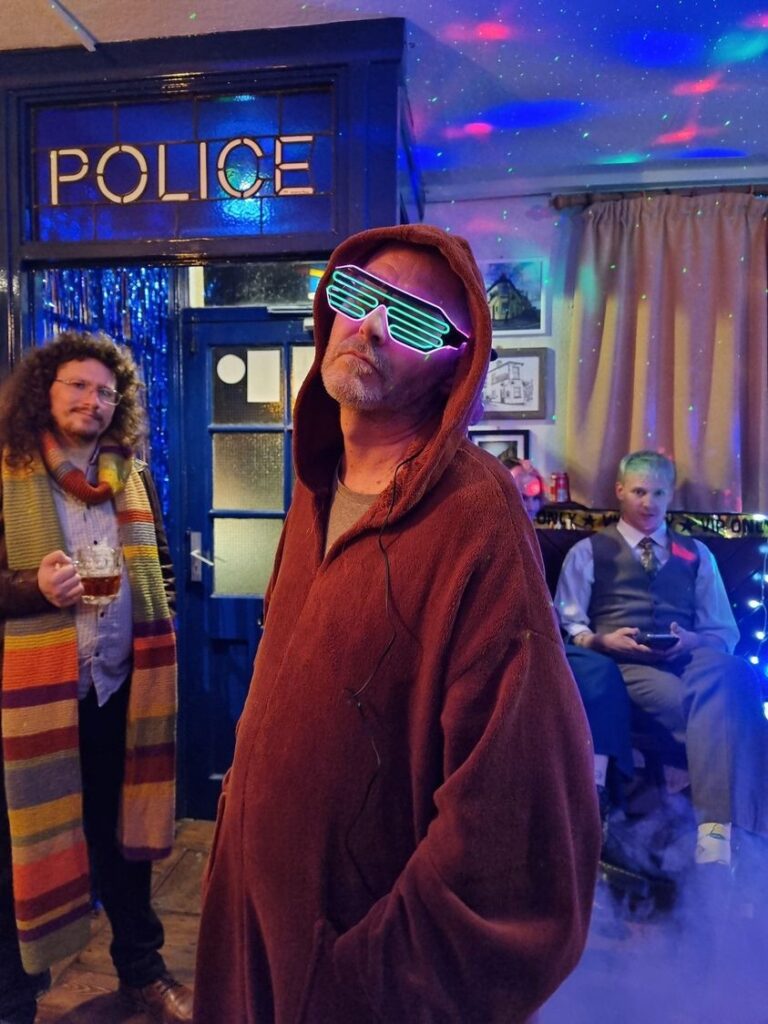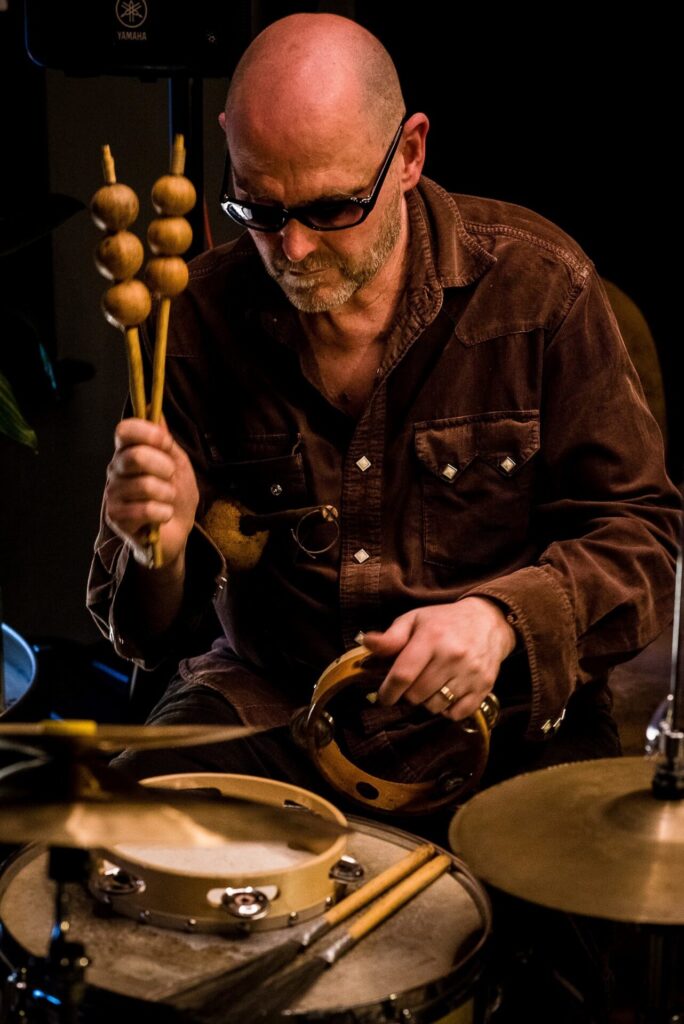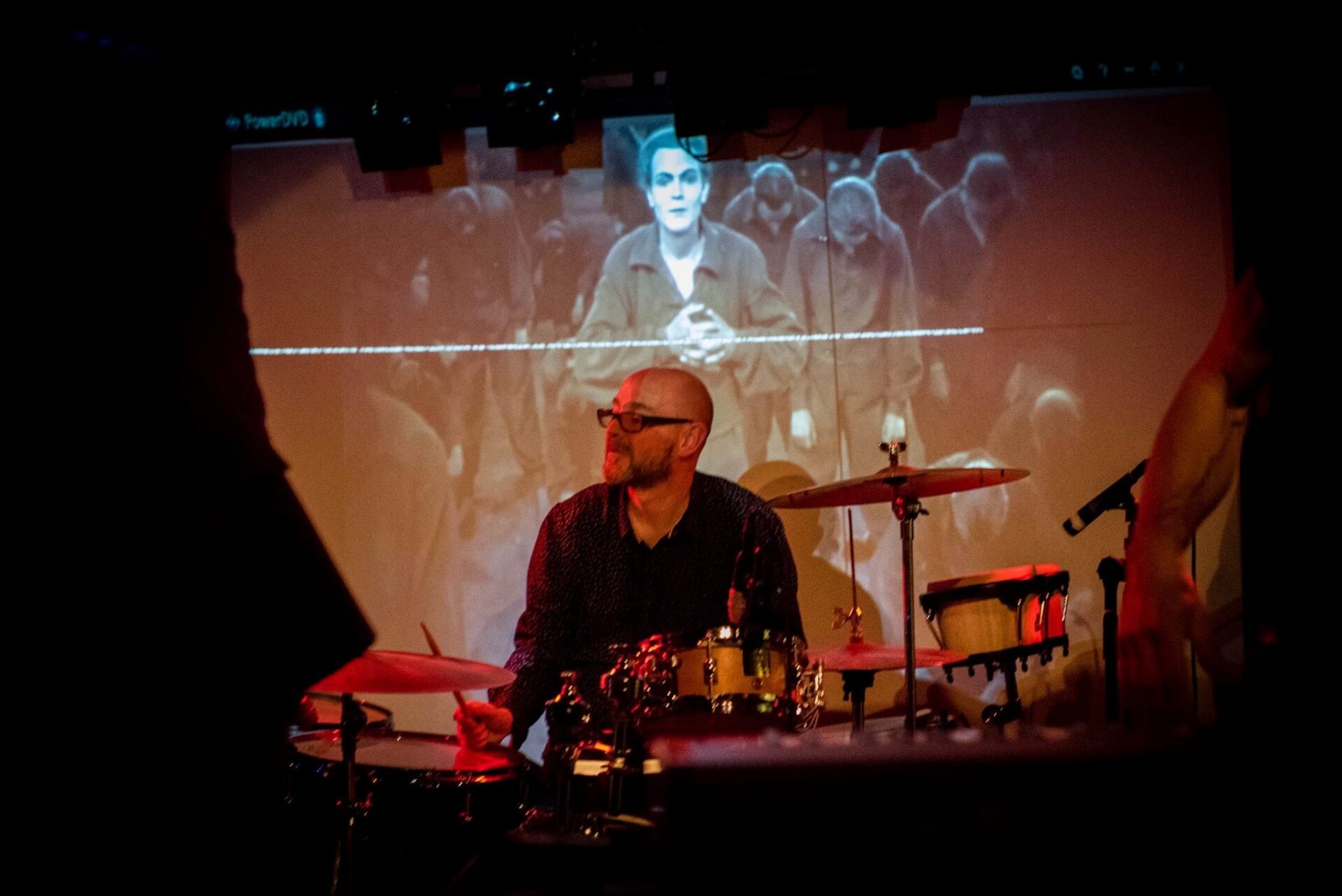Sotoyoto, a multi-instrumentalist, sonic explorer, DJ, and film/video game composer, wishes for you to be inspired by Deep Listening.
Other Words For Dusk is a collection of pieces with dark ambient leanings that explores the relationship between listening and emotional response.
It is a slow-burning affair comprised primarily of audio offcuts saved while working on the environmental atmospheres and melancholy tunes for the cult indie video game Chasing Static. The majority of the pieces in this collection were inspired by the game’s evocation and underlying mystery notions.
This music also persistently expresses Sotoyoto’s conviction that a universe of sound and auditory inspiration can be found in the ether surrounding us. Presented in HD audio clarity, these compositions capitalize on sonics we don’t (or choose not to) ordinarily hear considerably more than the standards of click-through digital music designed to attract attention. It is not a passive listening experience, despite the album’s patient examination and emerging mystery at its core. Put on your headphones, let the music play, listen closely, or disregard what you’re hearing, and continue with your day. It doesn’t really matter; all that matters is how you feel when it plays. While you’re at it, check out the exclusive interview with Sotoyoto below:

1. Can you tell us a bit about where you come from and how it all got started?
SOTOYOTO: Hi and thanks so much for your questions! I’m from the West Country of England, near to the beautiful rolling downlands of crop circles and ancient prehistoric monuments. Music has been as constant a path with me as the countryside I grew up in.
2. Did you have any formal training or are you self-taught?
SOTOYOTO: My teens were spent in a recording studio run by my Jazz drumming father. I went on to work as a session musician, specializing in drums and percussion but playing other instruments too. If music is in you, it’ll come out regardless of whether trained or not.
3. Who were your first and strongest musical influences?
SOTOYOTO: Growing up in a small village, I listened to a lot of shortwave and pirate radio transmissions. John Peel’s shows too. I also got a taste for late night TV horror sci-fi soundtracks and regularly raided my parents’ record collection (a healthy mix of jazz, hippy and weirdo beatnik stuff). I was particularly turned on by early Pink Floyd little knowing this would forever trigger my taste for odd sounds, sonic landscapes and melancholy melodies.
4. What do you feel are the key elements in your music that should resonate with listeners, and how would you personally describe your sound?
SOTOYOTO: I hope for it to be restless, organic and subtly changing experience over time, with a distinctive voice expressing something unsaid. I enjoy exploring alternative musical scales, a sense of space, cinematics and narrative mystery. One signature is constant though – what you don’t hear is as important as what you do. There’s a secretive world of sound and sonic enjoyment out there in the ether around us and I try to reflect this.

5. For most artists, originality is first preceded by a phase of learning and, often, emulating others. What was this like for you? How would you describe your own development as an artist and music maker, and the transition towards your own style, which is known as CINEMATIC?
SOTOYOTO:
Good question! I think originality actually comes from the sum of its parts and certainly doesn’t happen in a vacuum. I work as a DJ and music researcher occasionally, and am obsessed with music generally, so all and every music has been an influence. In terms of learning and emulation, I may be doing it the wrong way round. I play, improvise and create music without deliberation or wanting to sound like anything in particular. Critique or comparison might follow, but mainly, if it reflects what I am feeling whilst making it, that’s good enough for me.
6. What’s your view on the role and function of music as political, cultural, spiritual, and/or social vehicles – and do you try and affront any of these themes in your work, or are you purely interested in music as an expression of technical artistry, personal narrative, and entertainment?
SOTOYOTO:
Unless I’m working on a commission, the music I make is a selfish, explorative, spiritual activity. There may be an underlying theme to it but mainly I just want to escape this crazy mixed up world for a while and hope listeners feel the same.
7. Do you feel that your music is giving you back just as much fulfillment as the amount of work you are putting into it or are you expecting something more, or different in the future?
SOTOYOTOA:
I watched some kids having a play on my live set up recently and their uncritical joyfulness made music far better that I ever could.I’ve also been improvising extended live ambient soundworks for community art events lately. It’s really satisfying seeing how music affects moods and shifts of atmosphere for people. All this helps me realise that fulfillment is only found when expectations disappear and creativity is left to do its magic.
8. Could you describe your creative processes? How do usually start, and go about shaping ideas into a completed song? Do you usually start with a tune, a beat, or a narrative in your head? And do you collaborate with others in this process?
SOTOYOTO:
I love to improvise and build on what comes out of that. If a melody, beat or theme emerges I’ll follow intuition and see where it goes. It always amazes me how the best things come together quickly and naturally, if I intervene too much the creative flow falters. That’s a compelling reason behind collaborating with others and especially live. Having a collaborator (and an audience) alongside you as you make music in the moment feels like everyone’s in on the momentum and act of creating it.
9. What has been the most difficult thing you’ve had to endure in your life or music career so far?
SOTOYOTO:
I can’t deny that trying to earn a living from making music is tough. I’m sure I’m not alone in this. The worst thing I’ve had to endure as a result is an extended period of working for ‘the man’ to keep the finances ticking over. It’s really hard when you know deep down who and what you are to take a backseat on this, but sometimes you just have to.
10. On the contrary, what would you consider a successful, proud or significant point in your life or music career so far?
SOTOYOTO: Where I am now! Creating, expressing myself, meeting likeminded people, having musical fun, challenging myself – exactly where I want to be. If I’m lucky, I might even compose some music that people feel connects with them.
11. Creative work in a studio or home environment, or interaction with a live audience? Which of these two options excites you most, and why?
SOTOYOTO: Currently I’m really enjoying improvising to live audiences. The idea terrified me originally (as a drummer I used to have a kit to hide behind) but now I look forward to embracing the unknown and getting in the zone where magic sometimes appears.
12. Do you think is it important for fans of your music to understand the real story and message driving each of your songs, or do you think everyone should be free to interpret your songs in their own personal way?
SOTOYOTO: Only a fool would believe they can demand that an audience understand what their music means. Unless it’s manufactured for popularity and mass consumption, music is as personal and open to interpretation as the people making and listening to it are.
KEEP IN TOUCH:

